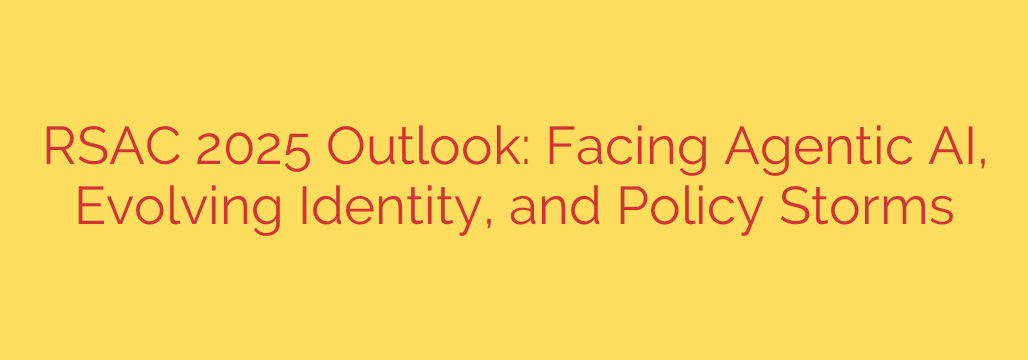
As the cybersecurity world looks ahead, the landscape is clearly being reshaped by powerful forces. Three major themes are poised to dominate discussions, reflecting the most pressing challenges and shifts facing organizations and security professionals alike. Understanding these trends is crucial for staying ahead in the ever-evolving battle against cyber threats.
One of the most significant areas of focus is the rise of Agentic AI. This goes beyond current AI applications; agentic systems can act autonomously, making decisions and pursuing goals without constant human oversight. While offering potential benefits in efficiency and automation, they introduce complex security risks. How do we ensure these agents operate safely? How do we prevent them from being exploited or turning malicious? The need for robust safety guardrails, monitoring mechanisms, and clear accountability frameworks for agentic systems is becoming paramount. Security leaders must grapple with defining and implementing controls for entities that operate with a degree of independence.
Parallel to the advancements in AI is a fundamental transformation in how we manage and perceive identity. The traditional perimeter is dissolving, and identity has become the new control plane. We are seeing a strong push towards decentralized identity and the adoption of verifiable credentials and digital identity wallets. This shift promises greater user control and privacy but also creates new challenges in verification, trust, and managing the lifecycle of digital identities across disparate systems. Securing these new identity paradigms and ensuring seamless, yet secure, access in a decentralized world is a critical task that requires innovative approaches.
Adding further complexity is the current state of cyber policy and regulation. The global political climate is turbulent, leading to fragmented and sometimes conflicting approaches to cybersecurity governance. Nations are enacting diverse laws regarding data privacy, critical infrastructure protection, AI regulation, and cross-border data flows. This policy turbulence creates significant challenges for international businesses and security teams trying to navigate a patchwork of compliance requirements. Geopolitical factors increasingly influence cyber policy, turning national security concerns into regulatory mandates that impact technology design and deployment worldwide. Effective cyber policy requires greater international cooperation, yet navigating differing national priorities and legal frameworks remains a major hurdle.
These three interconnected trends—Agentic AI, the shift towards Digital Identity, and the turbulence in Cyber Policy—are not isolated issues. They intersect in complex ways, each influencing and amplifying the others. Security professionals must develop strategies that address the risks and opportunities presented by autonomous AI, secure the future of digital identity, and adapt to a rapidly changing regulatory landscape. The discussions around these topics will be essential for defining the future direction of cybersecurity defenses and ensuring resilience in an increasingly complex world. Staying informed and prepared for these transformative shifts is absolutely necessary for protecting digital assets and maintaining trust.
Source: https://www.scworld.com/news/rsac-2025-preview-industry-tackles-agentic-ai-identity-shifts-and-cyber-policy-turbulence








